Relocation
Relocation to Vietnam
Moving To Vietnam As An Expat
We understand the unique needs of expatriates and foreign professionals moving to Vietnam, and our dedicated team is here to ensure a smooth transition for you. Explore our comprehensive relocation services tailored for your convenience: What's it like to live in Vietnam? With a vibrant population of 100 million, including 100,000 expats, Vietnam is becoming a hotspot for foreign families, driven by its booming economy. As the country gains prominence globally, there's a significant demand for skilled foreign talent and investors to enhance the growth of local businesses. Projections even suggest that by 2050, Vietnam could rank among the world’s top 20 economies.
This is an ideal time to consider relocating to Vietnam. But what should you be aware of before taking the leap? Our detailed guide for expats covers everything you need to know about living in Vietnam. We delve into key aspects like upfront expenses, visa and work requirements, the tax landscape, and the best areas to reside in.
Expat Population
Average Living Expenses
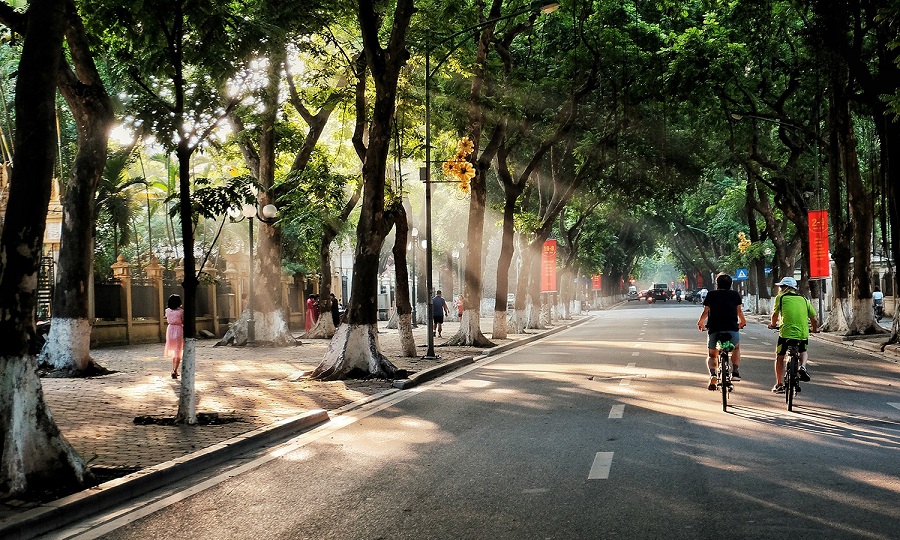
Life in Vietnam: What Expats Can Anticipate
Vietnam's incredible transformation, fueled by the Doi Moi reforms of the 1980s, has morphed it into a modern economic powerhouse. While the fast-paced tourism sector captures the imagination of many expats, booming fields like telecommunications, exports, and finance are equally exciting.
Embarking on a new adventure in Vietnam promises both thrilling opportunities and one-of-a-kind challenges. Whether you're hunting for the best job prospects or eager to embrace the vibrant Southeast Asian lifestyle, this guide is your gateway to thriving as an expat in Vietnam. Get ready to dive in!

Teaching offers the simplest entry into Vietnam's job market. We can help you obtain a TESOL certificate and secure a position at an English Centre or Public School.
Is Vietnam safe for expats?
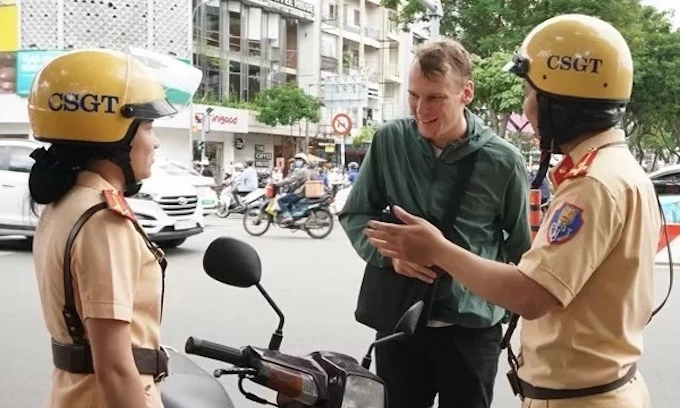
Yes, Vietnam is generally considered safe for expats. It has a relatively low crime rate, and most people find it welcoming and hospitable. However, like anywhere, it's important to stay aware of your surroundings, especially in crowded areas or when using public transportation. Petty theft, such as pickpocketing, can occur, so keeping an eye on your belongings is advisable. Overall, with common-sense precautions, expats can enjoy a safe and fulfilling life in Vietnam.
How many expats and foreigners are living in Vietnam?
There are around 92,500 expats in Vietnam, according to the Ministry of Labour (2025 data). Total population is 100,486,856
Discovering Vietnam: A Cost-Effective Haven for Expats
Vietnam stands out as one of the world's most affordable destinations for expats. With impressive earning potential—often around $78,000 annually, especially in booming sectors or multinational firms—the financial outlook is promising.
Despite this earning capacity, living costs in cities like Hanoi and Saigon remain low. A small family's monthly expenses, including rent and dining, typically stay under $1,500. For expat families with substantial incomes, Vietnam offers a chance to enjoy a luxurious urban lifestyle while still having savings to spare.

Exploring Vietnam's Language Scene
Vietnam's primary language is Vietnamese, but you'll also find French, thanks to the country’s colonial past. In busy cities, Mandarin Chinese is common too. English is widely spoken in urban areas, but might be less understood in rural spots.
The good news? Vietnamese uses the Latin alphabet, making signs and manuals easier to read. Embrace the local languages, and your Vietnam adventure will be more rewarding!
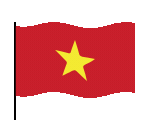
Mastering a new language can be challenging for expats.
Check out our list of top Vietnamese language teachers in Ho Chi Minh City and Hanoi to help you on your journey.
Finding Your Home in Vietnam: Tips for Expats
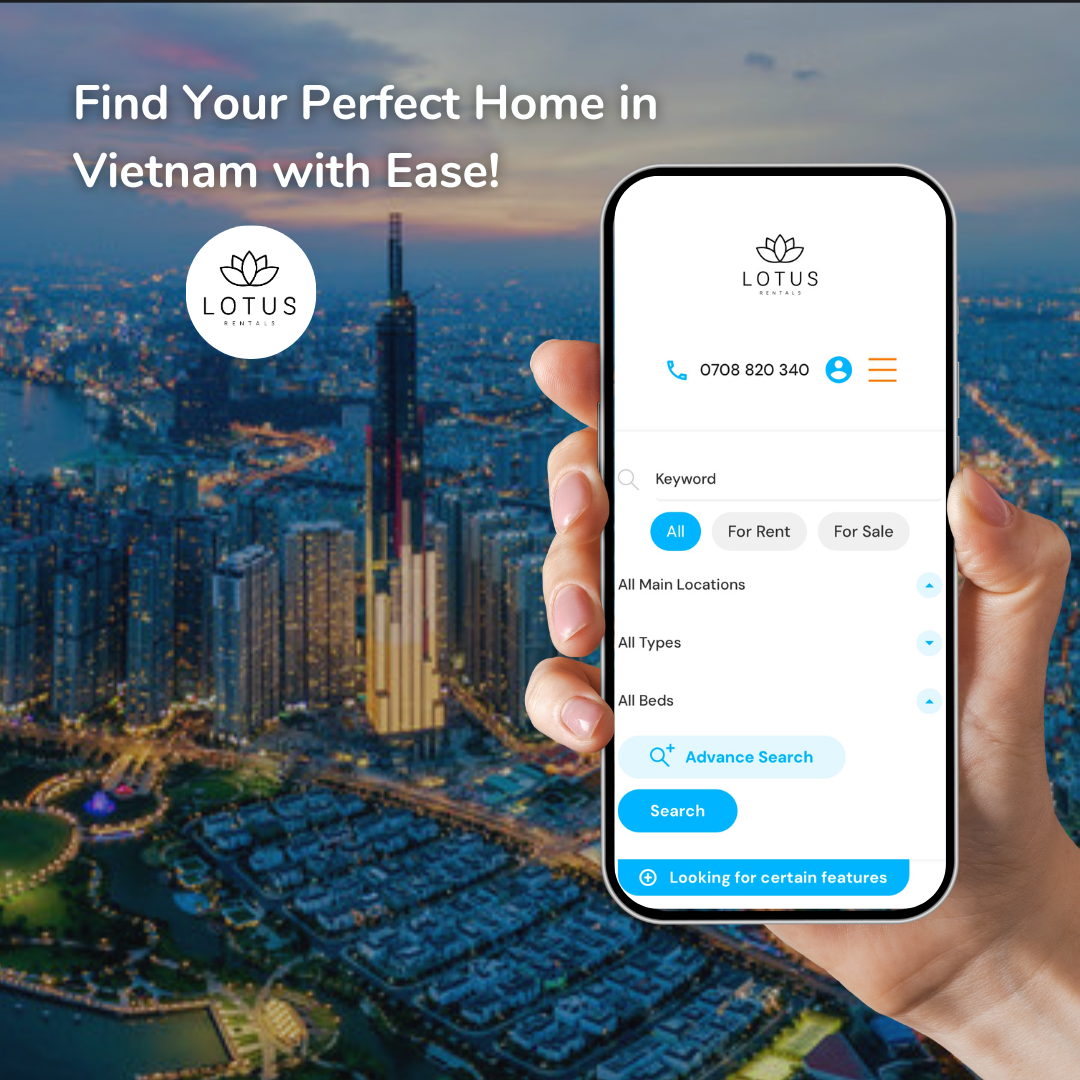
Lotus Rentals (Best accomodation platform in Ho Chi Minh city)
Finding Your Home in Vietnam: Tips for Expats
Where Do Expats Live in Vietnam?
Expats are spread across Vietnam, with many choosing vibrant cities like Ho Chi Minh City and Hanoi. These locations offer a range of housing options to suit different lifestyles and budgets.
Choosing Where to Live
Vietnam boasts excellent accommodation standards. While prices can be a bit higher than other Southeast Asian countries, the quality is generally impressive, catering to all budgets.
Housing Competition and Options
With a construction boom underway, there are always new rooms available, keeping costs competitive and service top-notch. Along the coast, you'll find many luxury resorts, while budget-friendly options are plentiful across the country.
Understanding Accommodation Types
In Vietnam, accommodation labels don’t always indicate quality, as standards can vary widely. Older hotels may have a simple, state-owned feel, whereas many private mini-hotels offer surprising charm.
Most places offer a variety of rooms, from basic fan-cooled spaces to modern air-conditioned rooms with amenities like satellite TV. As a general rule, newer establishments tend to provide better comfort and value.
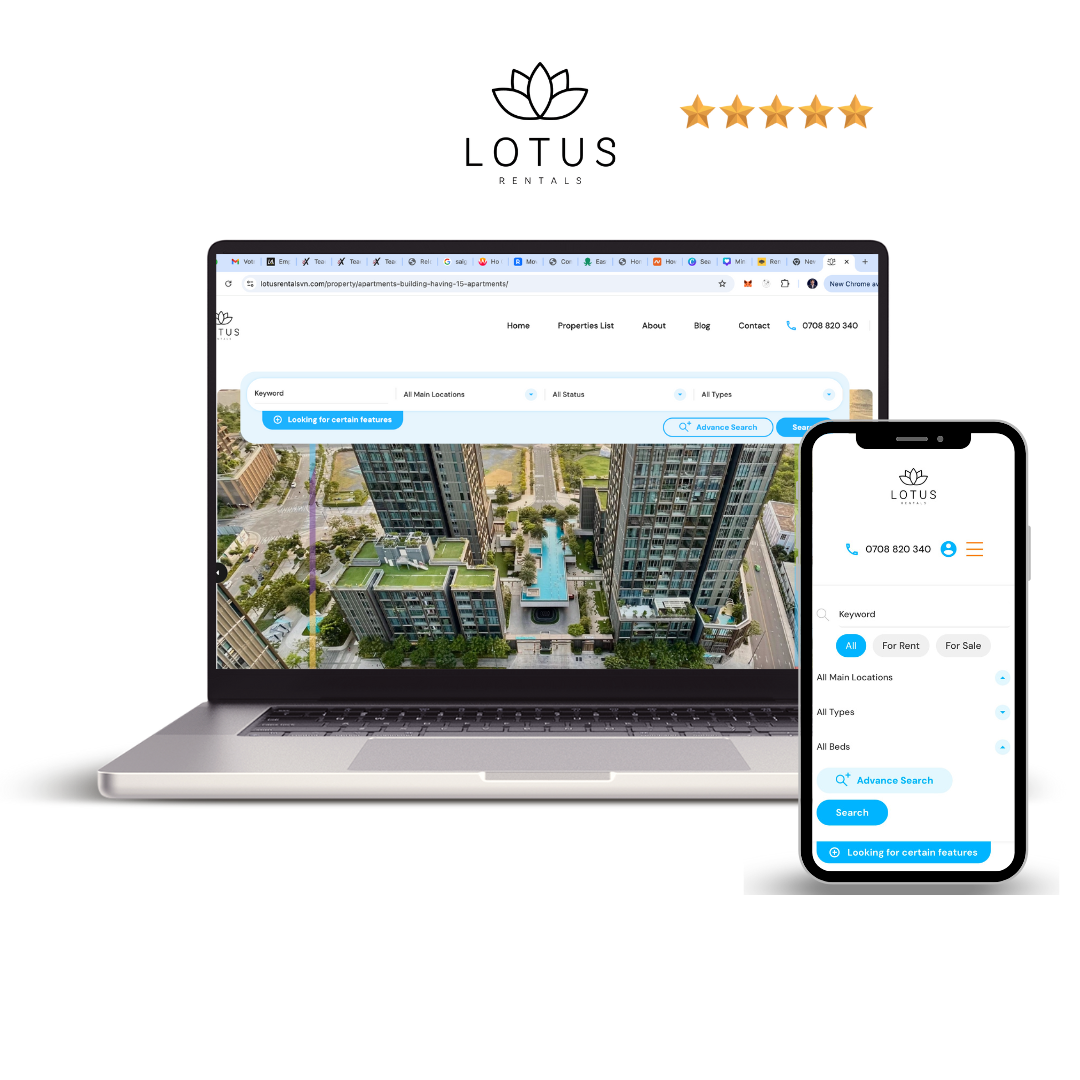
Secure Your Lease with Lotus Rental
Our Lotus Rental platform is designed specifically for expats, ensuring a seamless experience when signing yearly leases. We conduct thorough due diligence on landlords and realtors and guarantee that all listings come with accurate photos and details. With Lotus Rental, you can secure your new home in tranquility and confidence.
Where Do Most Expats Live in Vietnam?
If you're a first-time expat, you'll likely gravitate towards the bustling hubs of Hanoi in the North and Ho Chi Minh City (Saigon) in the South. These vibrant cities, with populations of 5 million and 9 million respectively, offer a lifestyle similar to large Western cities, filled with great food, entertainment, and easy transportation. Popular neighborhoods among English-speaking expats include Tay Ho in Hanoi and Binh Thanh in Saigon.
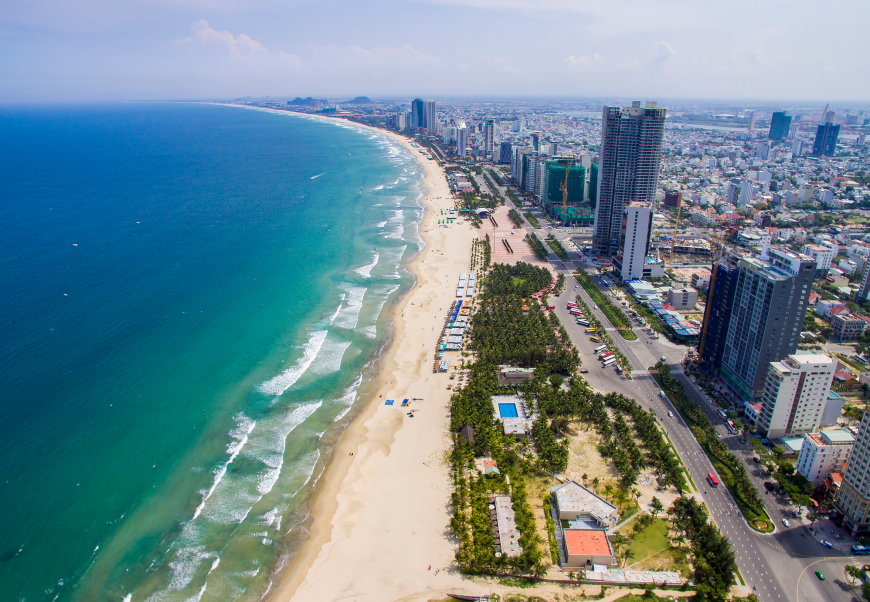
Da Nang City, Vietnam
Once you've settled in, you might be drawn to Vietnam’s stunning coastal cities. Da Nang and Nha Trang are favorites for those seeking a more relaxed pace of life. Keep in mind, Vietnam's lively atmosphere can be a bit noisier than you're used to, but embracing the energy is all part of the experience!
How Much Does It Cost to Rent in Vietnam?
Renting in Vietnam is surprisingly affordable. As an expat, you'll find luxurious yet reasonably-priced properties. In major city centers, spacious two-bedroom apartments typically cost no more than $1,500 USD per month. By comparison, a similar apartment in downtown Vancouver, Canada, would set you back around $5,000 USD.
If you're open to living a bit further from the city center, you can find cozy one-bedroom apartments for as little as $400–600 USD per month. Plus, many rentals in Vietnam come fully furnished, so you won't have to worry about buying new furniture when you move.
Ready to find your new home? Use the Lotus Rental platform to search for properties within your price range and discover the perfect fit for you!
Can Expats Purchase Land in Vietnam?
Currently, non-Vietnamese individuals can't own land in Vietnam. However, expats have the option to secure a 50-year lease on land, which allows them to construct a home on it.
Navigating Visas and Work in Vietnam
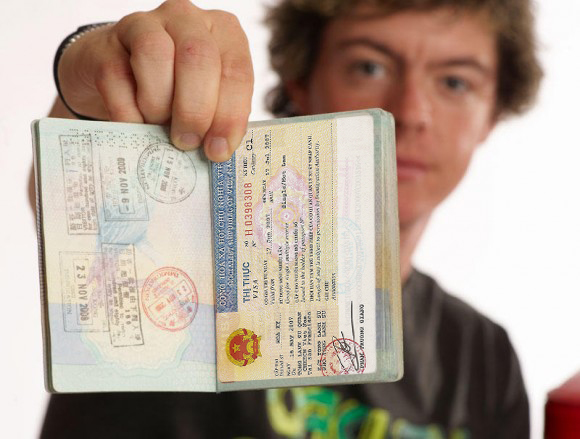
Source: vietnamimmigration.com
Securing Vietnamese Residency
Vietnam has strict immigration laws, requiring you to follow a few steps to obtain residency:
- Obtain a working visa.
- Apply for a temporary residency permit.
- Finally, seek a permanent residency permit.
Each step is crucial to living in Vietnam legally. If you need assistance, we strongly recommend to book a free consultation with us.
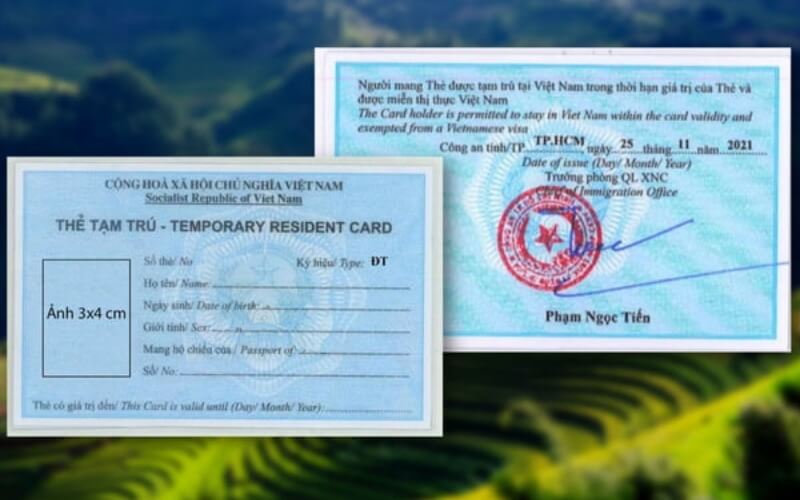
For more information on residency details, please visit the Residence (TRC) section.
Finding a Job in Vietnam as an Expat

Exploring Expat Job Opportunities in Vietnam: Teaching Abroad
Are you dreaming of living and working in Vietnam? One of the most popular pathways for expats is language teaching. With the demand for English proficiency soaring, many English language schools in Vietnam offer on-the-job training, making it accessible even if you're just starting out. Qualified teachers can earn substantial salaries, making this an attractive option for many.
At Xplore Vietnam, we specialize in helping you embark on this rewarding journey. Our teacher package is designed to kickstart your career in education, securing you a position as a teacher while equipping you with essential cultural and educational skills. You'll have the opportunity to change lives, becoming an effective educator and a valued member of the local community
The Business/ Nomad path
Aside from teaching, Vietnam is also a hub for digital nomads and business professionals. Our business/nomad package caters to those looking to explore opportunities beyond the classroom. Whether you're a freelancer, entrepreneur, or remote worker, Vietnam offers a dynamic environment for growth and success in your field.
Explore the possibilities with Xplore Vietnam and take the first step towards an unforgettable experience living, working, and thriving in Vietnam. Whether you're drawn to teaching English or carving out your path as a digital nomad, we're here to help you make it happen. Find the packages below.
Tips for Future Expats in Vietnam
- Get Your Paperwork Ready: Make sure all your important documents and visas are sorted before you leave.
- School Applications: Moving with kids? Apply early for school placements.
- Renting a Home: Have up to three months' rent saved to secure your new place.
- Taxes: Remember, you might need to submit and pay your taxes twice a year.
Want more personalized advice? Click the button to book a free consultation with us!

For more information on Working in Vietnam, please visit the Work Employment section.
Bank Accounts and Taxes for Expats in Vietnam
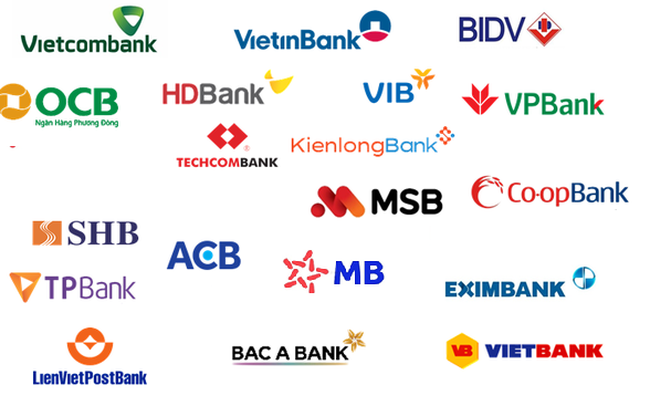
How to Open a Bank Account as an Expat in Vietnam
If you're an expat in Vietnam looking to open a bank account, here's the lowdown:
- Residency Proof: You'll need to prove you can stay in Vietnam for over 12 months. This usually means having a temporary residency card and a job contract.
- Address Proof: Have evidence of where you live in Vietnam.
- Follow the Process: Once you've got all your documents, just follow the bank’s steps. Be ready to make a small deposit.
- Business Accounts: Want a business account? You'll need a legal rep to sign your application. Plus, show business details like your registered address, operation licenses, and tax info.
It sounds like a lot, but once you have your paperwork ready, you’ll be all set!
What is the currency in Vietnam?
The official currency of Vietnam is the Vietnamese Dong (VND). It's the money you'll be using for everything from grabbing a bowl of pho to exploring the bustling markets.
As of 2025, 1 USD is roughly equivalent to 24,000 VND. This rate can fluctuate, so it's always a good idea to check the latest exchange rate before making transactions.
Paying Taxes in Vietnam as an Expat: A Simple Guide
Here's a quick rundown on how taxes work for expats in Vietnam:
- Who Pays Taxes?
- If you've lived in Vietnam for over 183 days, you'll pay the same tax rates as locals.
- Temporary residents can benefit from double tax agreements Vietnam has with 70 countries.
- Tax Year
- Runs from January 1st to December 31st.
- Filing Taxes
- Income tax is filed monthly.
- General tax returns are due by March 30th.
- Tax Rates
- Rates range from 5% to 35%, depending on your income.
- How to Pay
- If you work for a company, they usually handle your monthly income tax.
- For personal businesses, property sales, or investment income, you can pay via a bank transfer.
- Many expats hire an accountant to help with tax filing before the March 30th deadline.
That's the basics to keep you sorted! Click here to visit our Accounting & Taxation Service section for more information on how we can assist you.
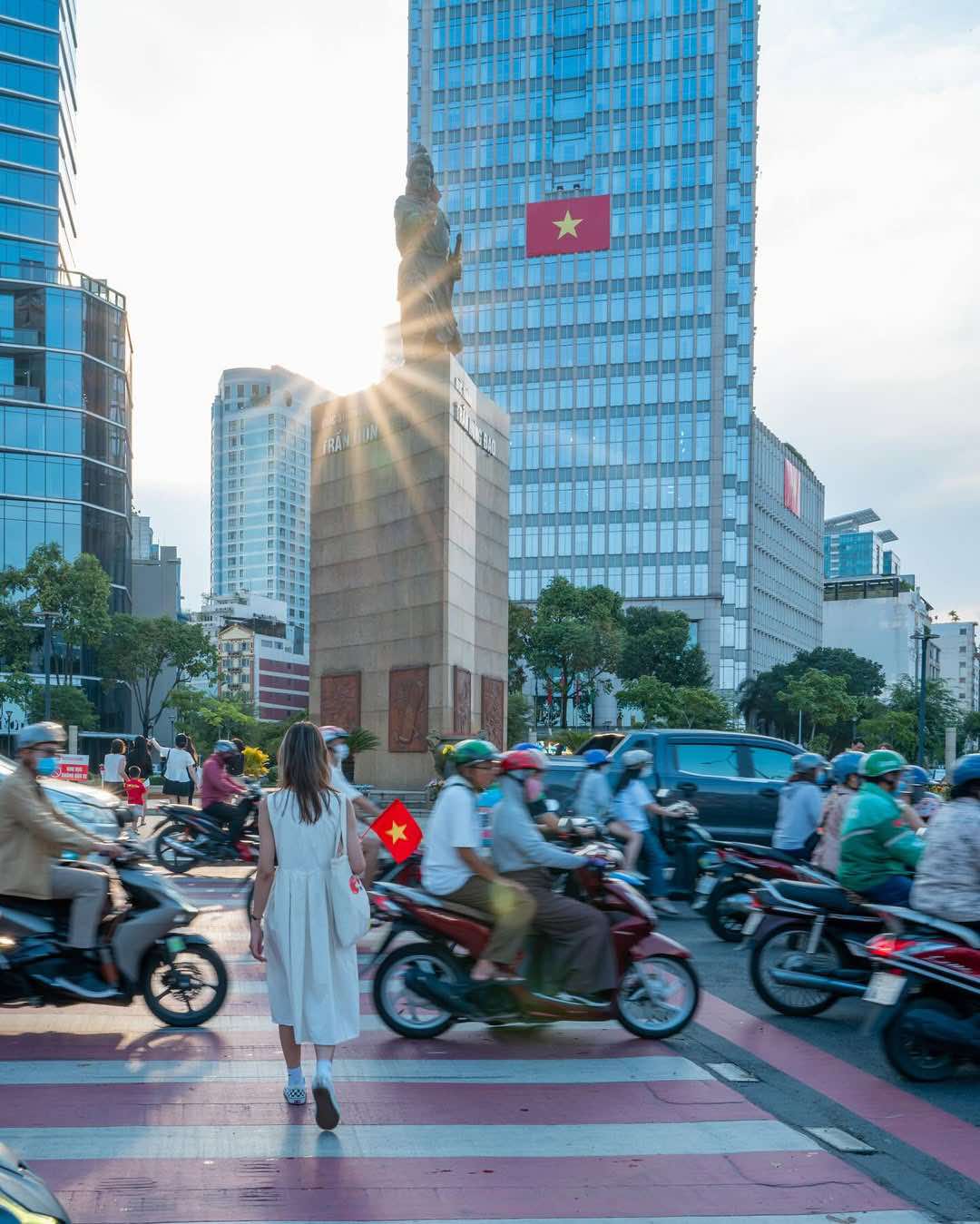
Cost of Living in Vietnam
Living in Vietnam is considerably more affordable than in Canada. On average, expenses are about 45% to 50% lower in Vietnam compared to Canada. This disparity allows your money to stretch much further, especially if you're used to Canadian prices.
Key Considerations:
- Lifestyle Choices: Your daily expenses in Vietnam will depend on your lifestyle. Embracing local markets and transportation can reduce costs significantly, while opting for international brands and amenities can be more expensive.
- Regional Differences: Just like in Canada, costs in Vietnam can vary from city to city. Major cities like Ho Chi Minh City and Hanoi are costlier than smaller towns, mainly due to a higher demand for expat-friendly services.
.Overall, Vietnam presents a more economical living option, making it appealing for those looking to maximize their budget without compromising on quality of life.

Foreigners are currently not allowed to rent or drive a car in Vietnam without a Vietnamese driver’s license.
Motorbikes can be used.

Foreigners are currently not allowed to rent or drive a car in Vietnam without a Vietnamese driver’s license. Motorbikes can be used.
Understanding the Cost of Moving to Vietnam
Moving to Vietnam can vary in cost depending on your starting location and the volume of belongings you wish to bring. Thanks to its extensive coastline and numerous ports, shipping items to Vietnam is relatively straightforward and efficient.
Key Points to Consider:
- Shipping Logistics: With Vietnam's well-connected ports, shipping your items via sea is generally convenient and can help keep costs down.
- Local Moving Services: Once your belongings arrive, you'll find local moving services in Vietnam to be quite affordable. Transporting your items from the port to your new home won't break the bank.
- Overall Costs: While the total cost for an entire move can reach up to $3,000 USD, many find their moving expenses significantly lower. The final price depends on factors like shipment size and distance.
By planning wisely, you can manage your move to Vietnam without exceeding your budget.
Healthcare and insurance in Vietnam

Vietnam's Evolving Healthcare: A Focus on Prevention and Accessibility
Vietnam's healthcare system is rapidly improving and highly effective. A key strength is its focus on prevention, which helped the country respond swiftly to the coronavirus pandemic. The system is a mix of public and private, but it's gradually becoming fully public. Urban areas have more advanced facilities, while rural areas are catching up. Most preventive services, like vaccinations and maternal care, are free.
Expats often visit private hospitals in cities like Hanoi and Saigon, where English- or French-speaking doctors are more common. It's wise to have private medical insurance, especially if you live outside the cities. Consider adding medical evacuation coverage, as some specialized treatments may require travel to Bangkok, Singapore, or Seoul.
Click here to visit our Insurance Service section to explore your options and ensure you're covered for all healthcare needs.

Schools in Vietnam
Curious about schooling in Vietnam? Here's a quick guide:
The Vietnamese state education system includes five levels:
- Pre-school
- Primary school
- Secondary school
- High school
- Vocational training or further education
While the system isn't the most celebrated in Asia, it has room for improvement. Challenges include underpaid teachers and an outdated curriculum. Consequently, many expats opt for private or international schools for their children.
International Schools in Vietnam: Locations and Costs
.International schools are plentiful in Vietnam's major cities and offer a variety of curriculums, including American, International Baccalaureate, and Australian models. If you're looking for education in English or French, these schools are a must.
Tuition fees range from USD$10,000 to USD$30,000 per year.

Considering Relocating with Children?
Schedule Your Consultation – Discuss your relocation needs and plans.
Your Ultimate "Moving to Vietnam" Checklist
Accommodation
Employment
Healthcare
Banking
Relocation
